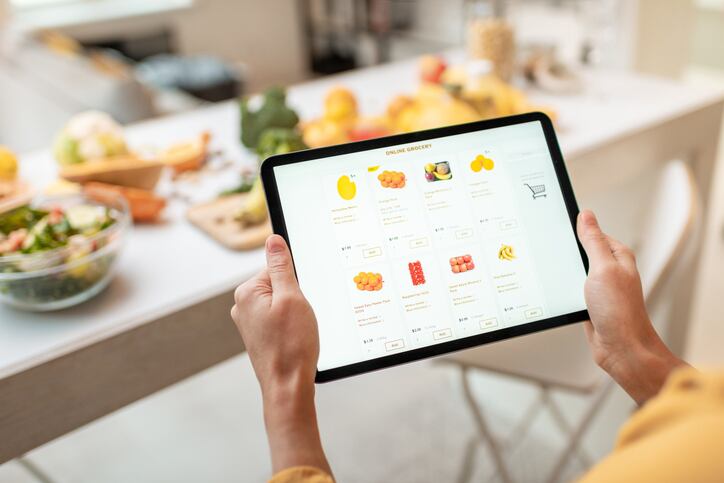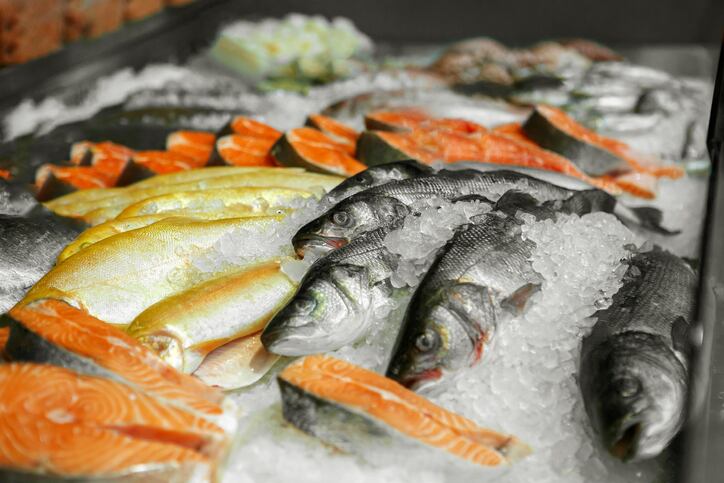The UK online supermarket recently reported a sharp rise in sales and profits driven by larger orders and order sizes during the pandemic. Although customer numbers had dropped during the year because of capacity constraints, sales jumped 35%, with the company declaring many customers were saying they were unlikely to revert to their pre-crisis shopping habits.
Smith told the City Food Lecture, made up of an online audience of over 1,400 food and drink industry leaders, there was a bright future for the online grocery sector, despite its grapples to cope with accelerating demand amid the COVID-19 pandemic.
“The growth in online sales has wildly accelerated over the past year. Before the pandemic online grocery sales accounted for 7% of the total market. In 2020, the channel almost doubled to 13%. The UK has one of the highest online penetrations globally, and we expect that the online channel will double in size again over the next few years,” she said.
The sector had been renowned for failing to live to expectations. Hopes were high back in 1997 when Tesco unveiled its online channel. But online shopping had consistently struggled to move away from a niche appeal. According to Mintel, growth in the sector in 2019 slowed for the fourth consecutive year as the sector continued to struggle to reach new customers, with much of the growth in the market coming from existing users.
But demand soared during COVID-19 and the sector hopes it can continue to grow as working from home and new attitudes to hygiene become permanent consumer habits.
“It’s not an exaggeration to say that COVID is proving to be the catalyst for a permanent shift to online grocery shopping,” said Smith. “McKinsey says that consumers take two months to change shopping habits. They have had nine months. Thirty percent of UK consumers say they will shop more for groceries online after the crisis has ended. Those customers who try online shopping quickly recognise the benefits of better choice and less effort.”
Buying online eliminates food waste
She added that the sector was uniquely positioned to tap into rising concern among consumers for solutions to the problems posed by food waste.
“We produce hardly any food waste. This is partly because we have a really short supply chain but also because we have a perfect view of what our customers have in their baskets, up to 28 days in advance. This means we are better able to predict what we need from our suppliers and minimise potential waste from buying too much. In 2020, our waste was 0.04%; this contrasts with the industry average waste figure of between 2 and 5%. This makes a big difference to our bottom line and we are always investigating new ways to further reduce our food waste and provide our customers with the freshest possible food.”
Opportunities in helping consumers with meal planning
This further allows opportunities to help customers with the ‘often-onerous’ task of meal planning, she said.
Ocado already help customers build their order by showing them products they purchase frequently that are not currently included in their basket, and incomplete promotions they will otherwise miss out on.
“The next step on is likely to be better support for meal planning; suggesting and completing recipes based on what is in your basket and ways to use leftover food, like how to use the last half jar of pesto that you bought to use in another recipe that’s now slowly decomposing in the back of the fridge. An average family could save £700 a year by simply not binning food, so helping our customers use food before it goes off would help them to manage their budgets and reduce food waste.”
Smart technology bringing convenience to a new level
She added that the sector would enjoy opportunities on the back of the 5G mobile networks that are currently being rolled out in the UK. Faster and smarter technology, she explained, would allow consumers more convenience.
“5G and the growing number of smart appliances also open up huge new possibilities to reduce the amount of time you take to plan your weekly shop. Smart appliances are filled with sensors and connect to the internet to upload and analyse collected data. The future will link your basket to your fridge. Your smart fridge would then be able to take a look inside, work out what you are running low on and what is going out of date, and add it to your basket. Smart appliances will work out how much you really need of staple items based on your consumption patterns and make sure that you buy enough to last until the next shop, reducing the number of times you wake up in the morning and find there is no milk or bread.”




